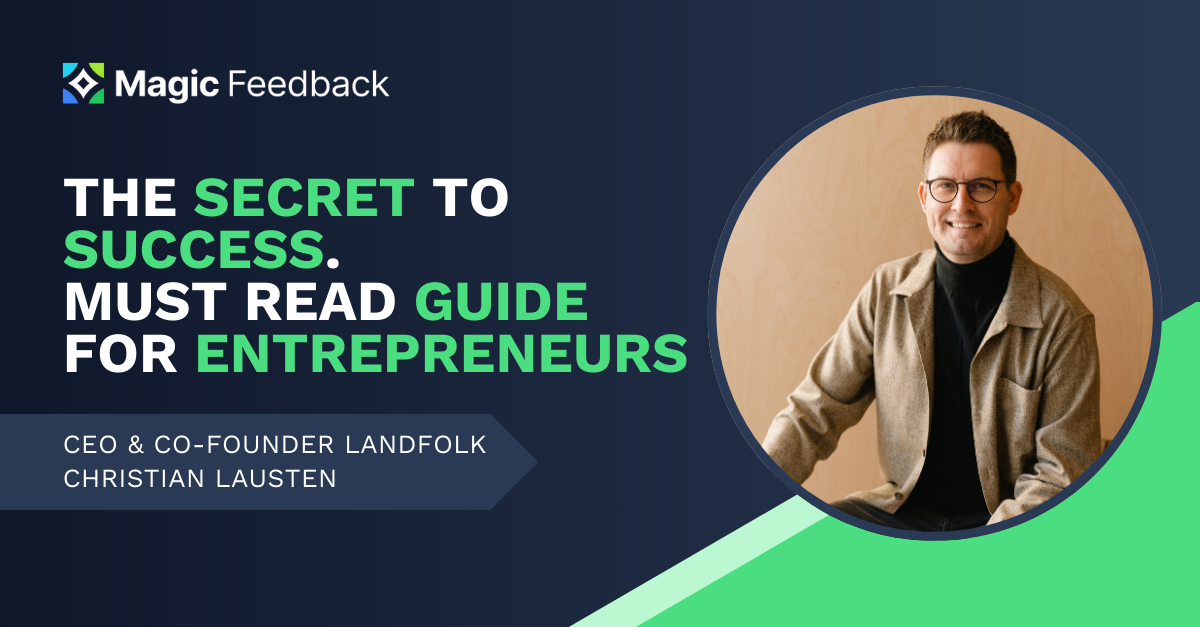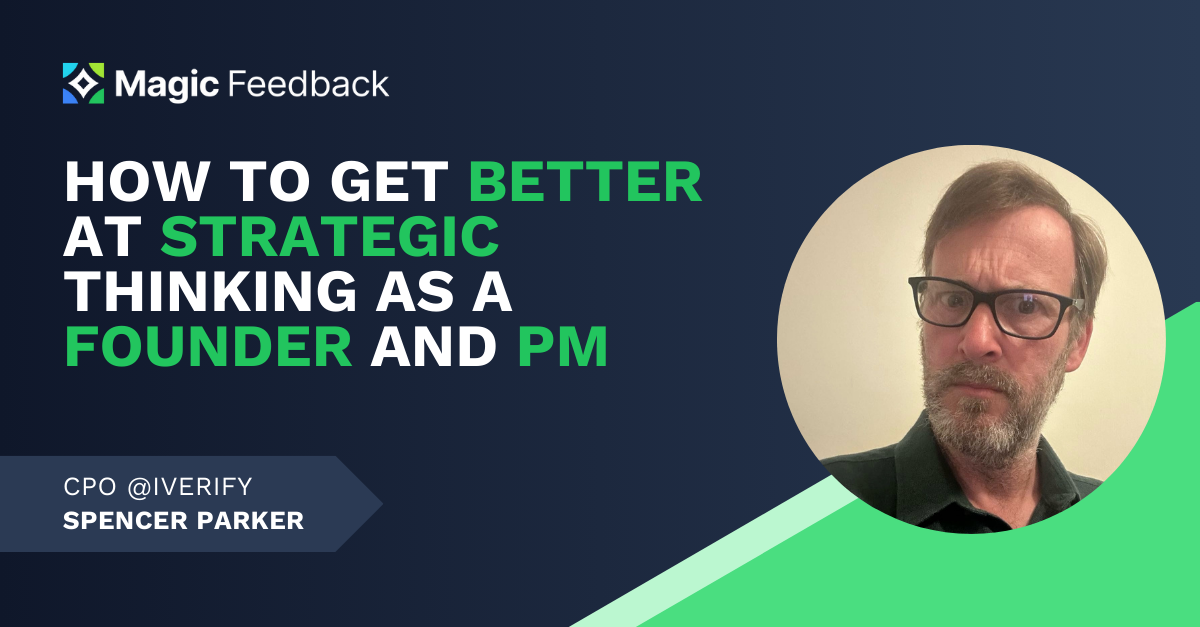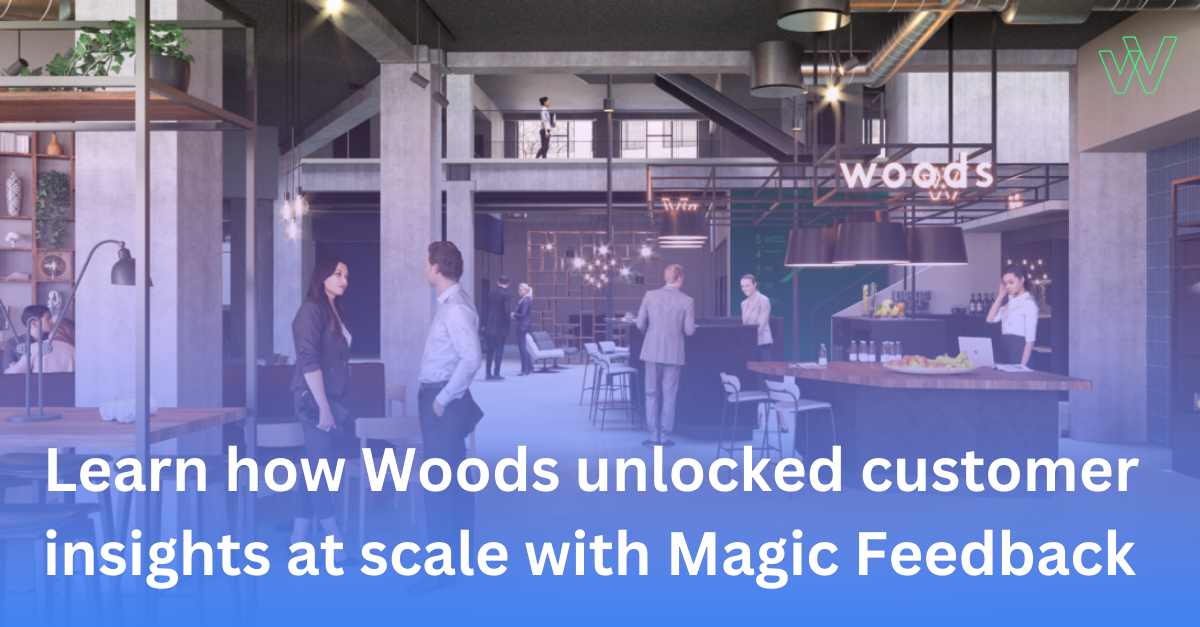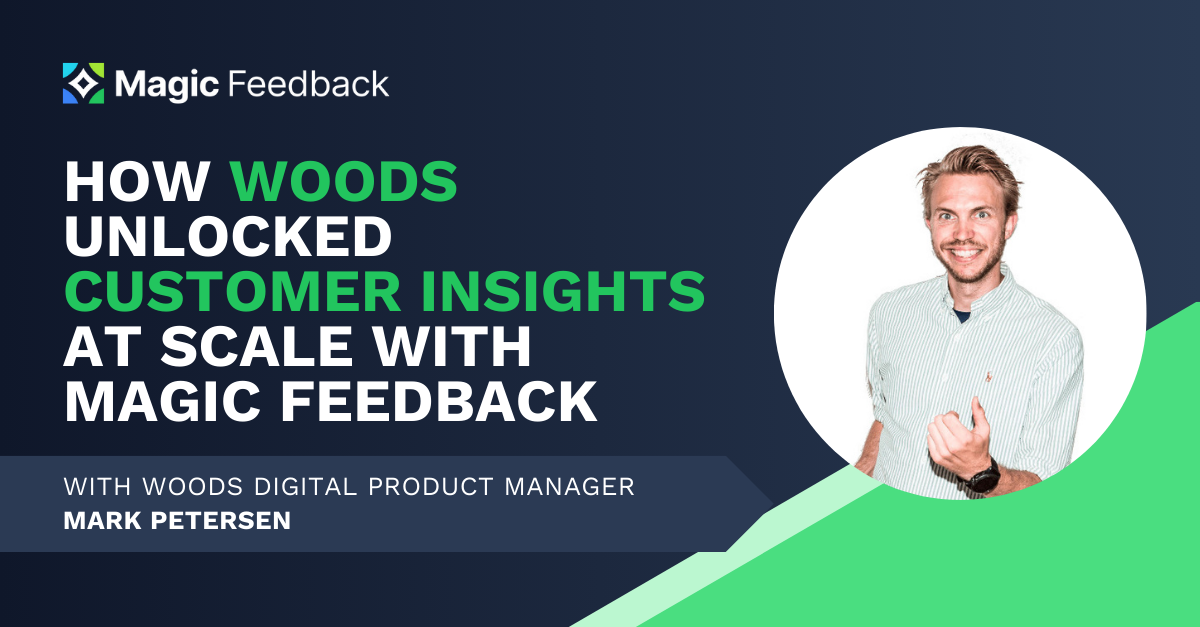
Today I sat down with Christian, a successful danish entrepreneur. Christian started his own consultancy with his partner Anders 12 years ago, and has since built a business, which was sold to Airbnb, several other ventures and now Landfolk, a marketplace for premium vacation rental. I tried to learn as many practical tips from him as possible and I am excited to share them with you.
What I really wanted to find out first was, how did he select the winning business idea? How did he know what to start on?
“I always had the urge to build something on my own and to be the one that decides. I think that was just the initial urge, not to start anything specific.”
The answer is much more honest than I expected. As someone who once sat down and wrote 20 potential business ideas to start (I only knew I wanted to start something not what, hearing this from him is so refreshing). But still, why did he start with a consultancy?
“To be honest the easiest thing to start up with was a consultancy. I think if you don’t have very good ideas for building something yourself, you can always become a consultant.”
Being a consultant has always been a go-to idea for me as well. One that has often headed my lists of ‘easiest things to start’. The question I always asked myself was, can you really make it big with a consultancy (and doesn’t every entrepreneur dream of making it big?)
“I say this in a cheeky way, because obviously it’s not easy to become a successful consultant. It’s not easy to scale a consultancy either. But it’s very very easy to start. You just need your brain basically right, and a few good ideas. What we learned was that scaling a consultancy is very, very hard. You don’t get Investments for a consultancy, that’s for sure. No business angels, no VCs are going to fund your consultancy. “
He goes in a bit more detail, for those that want to follow his steps.
“The other part is that in order to scale you need to run super fast, right? Because you’re selling your own hours, so at some point you start seeing okay I could actually also sell someone else’s hours. And then you start selling that employee’s hours and then at some point you can see okay, I can sell another employee’s hours. And then you scale super organically, right. But it’s always on the cusp of basically going broke and growing.”
He gets super frank with me at this point:
“Even with our 25 people, I never really felt we had a truly scalable consultancy mode. I didn’t know how to build it anyway”
But those 12 years provided the foundation and the stepping stone for the next, scalable part of their journey. Probably the most important lesson he learned in that time, the journey is only worthwhile if you surround yourself with the right people. They just make all the difference.
“We have always been very good at finding great people and also being able to keep them. So with a lot of the people at Landfolk I have been collaborating for many years. I even have one of my first interns 13 years ago, Camila, she’s actually one of the co-founders today.”
His advice to all starting today – go out there and make sure you find people you would love working with, day in and day out.
“For me It’s very important to find good people that I love working together with. That I truly believe in, that I have confidence in. Who I could see myself building companies with for the next many many years.I think that’s part of the secret of success, so to speak. That we’re good at finding people and collaborating with them.”
If you are a Founder, who is considering whether or not you need to find a partner in crime. Chrisian’s advice is – go ahead, partner up.
“I think I would never even have been an entrepreneur, at least a successful one, if I didn’t have my co-founder and business companion all along the way. I think it’s both a way to stay sane, you know, the mental health of Founders is also a kind of a wide space to talk about. And I think you can avoid a lot of frustrations also with your spouse because otherwise, they will have to listen to you all the time.”
However, as many of us know from practical experiences, this is not always easy to do.
“But again, as I always say, it’s just as hard finding a true business partner as finding your husband or wife. And when you find that person, you really have to stick together, because that’s also how I think work happiness is a big part of your life. So, if possible, try to do that. “
The next advice – always build products you would like to use yourself.
“I think building products that you want to use yourself is always a pretty good value prop. It makes you, somehow part of the ideal customer profile (ICP), it makes you part of the target audience and it makes you much more tuned into the pain points and the needs and the challenges and the possibilities of course. It’s a pretty good thing, if you can have yourself as a target audience. Then you are some kind of validator of the product, right.”
Any other advice on how aspiring entrepreneurs can select their business idea? He recommends that they first think about the type of business model that is most aligned to their ambition.
“It entirely depends on the business model and the scope. You just want to build a lifestyle business, that you and maybe one more person could make a decent living on. That’s great, but then of course, that’s not a unicorn. The other one is to have ambition that you want to scale it, you want to make it big, you want to see it grow rapidly and you want to make a lot of money. Or you want to exit or whatever you want right.”
For him, everyone needs to be honest with themselves at the beginning. And realistic. I completely resonate with that, because in the past I decided to start a scaled business, but instead work on it as a lifestyle business. I didn’t know these terms back then, but I knew something didn’t add up.
The way he advises people to take the next step, is to really, and by that I mean really, plan how they would own their home market.
“I think it’s good for you to start out in your home Market to test and experiment with your idea and actually be able to make a profit if you wanted to in that country in itself. Whenever I hear about a Marketplace that is trying to take out a small niche, where you need world dominance, I always say “forget it”. You cannot, in Denmark, start out a company out of the proposition that it’s only profitable if you have a monopoly in the whole world.”
How does he build a product that people would actually love? Does he have a secret recipe for that?
“No, but I think it’s the right way to think about it. What would people love? I think it’s very important to think about the minimum lovable product, not the minimal viable product. What is the smallest product you can build that people would truly love. Identifying that’s a great starting point.”
Have there been some mistakes along the way that he has learned from?
“Of course, I mean, it’s part of it, right? To stumble and get up again and so on. I think it’s very, very, very okay to make errors and mistakes, and I tell my team that all the time. But I don’t think you should repeat them, right? Because then it’s stupidity. So, fail fast, forward, as someone also says, right? So get up and move on. But notice the mistake and talk about the mistake and try to analyze the mistake in order to avoid it the next time, right? So people who repeat the same mistake twice, it’s hard to say that they’re stupid, right? But I think that at least they’re ignorant. And you shouldn’t do that because you don’t have time for it, basically, right?”
But going beyond mistakes into advice, what’s one advice that he has gotten throughout his career that has stuck with him?
“I would say, maybe “hire slow, fire fast.” I think it’s pretty crucial. I mean, resources are some of the most important parts of building a startup, and resources being people. You can easily blind yourself by having a need for more people very early on in your growth journey. Then you may suddenly find yourself having quite a high burn in your company because of that.”
I had to ask him – what’s one piece of advice that he wants to give to people that are starting their own companies?
“Own your data. You really have to understand a lot of things about your company down to the least economic unit. I think a lot of people are very happy-go-lucky, when they start, but you have to understand the granularity of your business or at least associate yourself with people who do help you on that or understand it, right? Obviously, I also believe in gut sense. I don’t think you should leave your gut sense anywhere. It’s also an important part of building a company. But you have to be informed by your data to make sure you don’t lose control or focus. “


